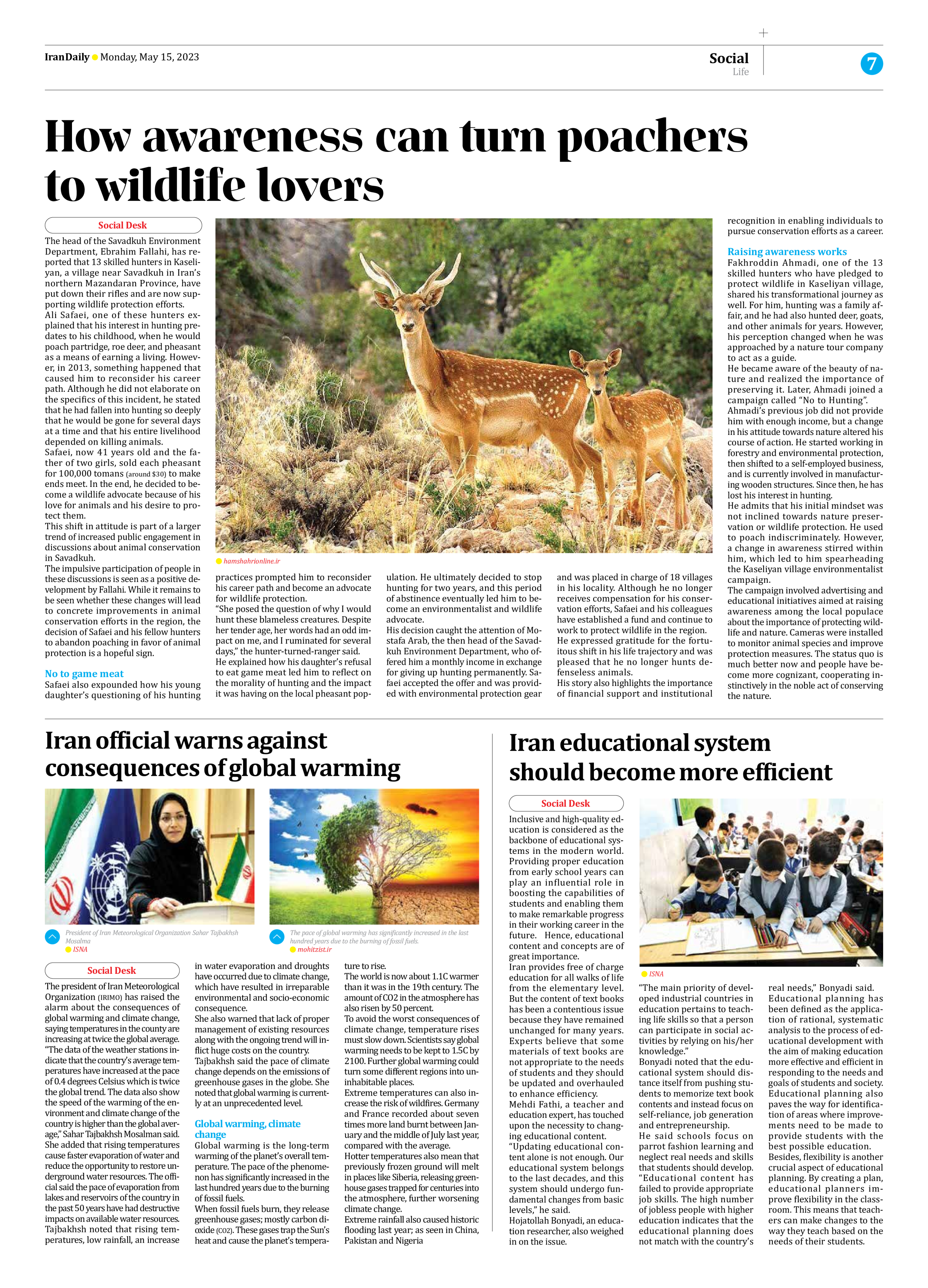
Iran official warns against consequences of global warming
The president of Iran Meteorological Organization (IRIMO) has raised the alarm about the consequences of global warming and climate change, saying temperatures in the county are increasing at twice the global average.
“The data of the weather stations indicate that the country’s average temperatures have increased at the pace of 0.4 degrees Celsius which is twice the global trend. The data also show the speed of the warming of the environment and climate change of the country is higher than the global average,” Sahar Tajbakhsh Mosalman said.
She added that rising temperatures cause faster evaporation of water and reduce the opportunity to restore underground water resources. The official said the pace of evaporation from lakes and reservoirs of the country in the past 50 years have had destructive impacts on available water resources.
Tajbakhsh noted that rising temperatures, low rainfall, an increase in water evaporation and droughts have occurred due to climate change, which have resulted in irreparable environmental and socio-economic consequence.
She also warned that lack of proper management of existing resources along with the ongoing trend will inflict huge costs on the country.
Tajbakhsh said the pace of climate change depends on the emissions of greenhouse gases in the globe. She noted that global warming is currently at an unprecedented level.
Global warming, climate change
Global warming is the long-term warming of the planet’s overall temperature. The pace of the phenomenon has significantly increased in the last hundred years due to the burning of fossil fuels.
When fossil fuels burn, they release greenhouse gases; mostly carbon dioxide (CO2). These gases trap the Sun’s heat and cause the planet’s temperature to rise.
The world is now about 1.1C warmer than it was in the 19th century. The amount of CO2 in the atmosphere has also risen by 50 percent.
To avoid the worst consequences of climate change, temperature rises must slow down. Scientists say global warming needs to be kept to 1.5C by 2100. Further global warming could turn some different regions into uninhabitable places.
Extreme temperatures can also increase the risk of wildfires. Germany and France recorded about seven times more land burnt between January and the middle of July last year, compared with the average.
Hotter temperatures also mean that previously frozen ground will melt in places like Siberia, releasing greenhouse gases trapped for centuries into the atmosphere, further worsening climate change.
Extreme rainfall also caused historic flooding last year; as seen in China, Pakistan and Nigeria







